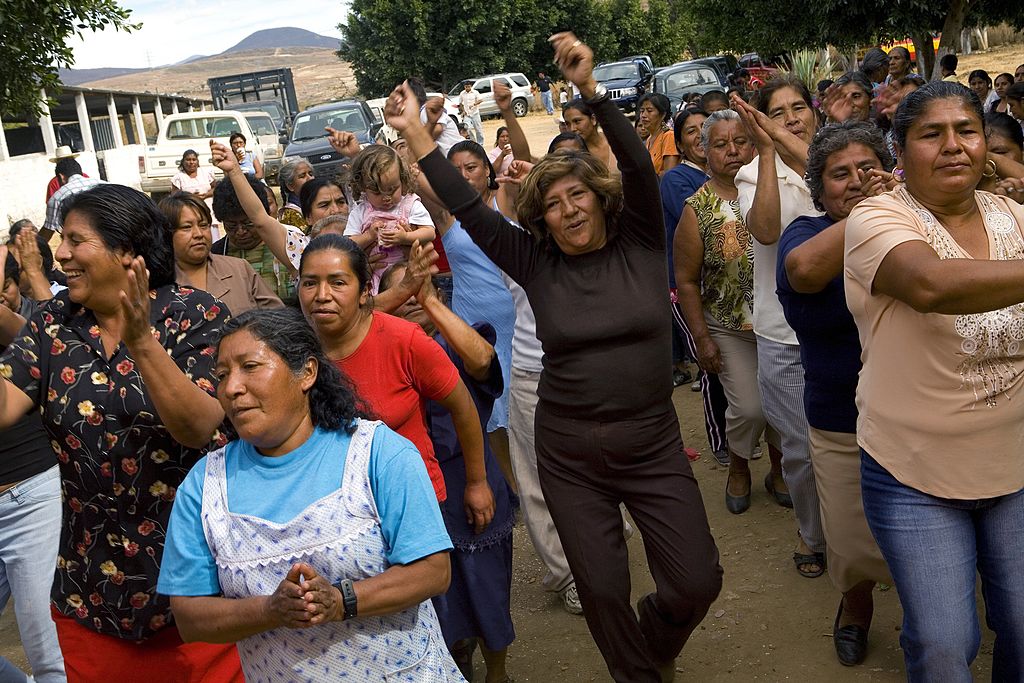The three of us – three women representing three different political parties as federal deputies in Mexico’s Congress – support the historic national women’s strike being convened by women’s groups and feminist organizations on March 9 in honor of International Women’s Day.
Here’s why we support the strike, and what we hope “A Day Without Women” – and the continued efforts of women’s social movements in Mexico – will achieve.
Every year on March 8, the world commemorates the early fights of working women in Chicago and New York, who demanded shorter working days, equal pay for equal work and the right to organize. Over the last 100 years, the demand for equality between men and women has continued and evolved. In Mexico, this year’s commemoration will conclude with a national strike to demand an end to the femicidal violence that every day takes the lives of 10 Mexican women, and to continue to insist that our rights and our lives be protected in every respect.
There are countless reasons why a strike is appropriate. Women are responsible for about half of the compensated economic activity in the country, and relied upon disproportionately for unpaid work in the home, which is roughly equivalent to 15% of Mexico’s GDP. In exchange, our rights are impaired or ignored. Women have become the protagonists of thousands upon thousands of stories of violence and impunity at the hands of men who, in public and in private, feel they have a right to decide over our lives and our bodies.
That should be enough to force any country to action. It hurts to see Mexico make international headlines because of the violence perpetrated against its women, and to see the state fail to articulate a plan to end this impunity and give women justice. That and many, many reasons more are why Mexico’s women will march in protest on March 8, and stop everything – stop working, stop asking, stop accepting – on March 9.
Women’s groups and feminist collectives in Mexico convened the national strike to make it clear where Mexico – its economy and its society – would be without women. But perhaps more importantly, the strike is intended to make us all feel the absence of the women who are taken from us, murdered on a daily basis, and through our silence make their voices heard.
The women’s strike is an initiative first and foremost of social movements, of organizations and collectives, born from civil society. We support that effort first as women, all of us conscientious of, and committed to, the common historical causes that link us together.
We are privileged to be part of this movement, which unites us in our diversity, to demand immediate, coordinated and meaningful action from all three branches of government to stop the systematic and structural violence that affects thousands of women and girls, and leaves a new void in our society every time a life is lost.
We support the strike as an exercise of our rights as women to protest in any form we see fit, without permission from patriarchal structures built on the belief that we need to ask them first, without regard for the condescension of machista culture that thinks it has a say over how we express ourselves, and without fear of the misogynist reaction we have come to expect from far too much of our society.
Instead we simply demand concrete action to stop the violence toward women in all aspects of life, to try to repair the damage done and to punish those responsible, to prevent future aggression through public policy aimed at defeating the machismo that still permeates relations between men and women.
In our role as legislators, too, we want to express our recognition, respect and support for the national women’s movement.
All three of us will continue to work to answer the demands and collective push for equal rights and lives free from violence. This is something that transcends political ideology.
In 2017, the Secretary General of the UN noted that gender equality was a central element of the 2030 Sustainable Development goals. Indeed, Objective 5 of the Agenda specifically refers to gender equality and empowerment for all women. In this, Mexico must redouble its efforts.
Despite undeniable strides in guaranteeing women’s political rights, and enjoying gender parity in Congress for the first time in Mexico’s history, there are many challenges left ahead if we are to overcome inequality and, above all, the numerous forms of violence committed against women.
Belonging to a “Legislature of Parity” obliges us to be responsible with all of the issues on our agenda, to work toward meaningful equality for women in all walks of life and to tend to the demands of society when it comes to security, justice and respect for women. For that reason, we are committed to pushing forward with current proposals already on the congressional agenda related to gender violence, femicide, equality and in-home childcare during the current legislative session. These issues cannot wait another day.
All that said, we are convinced that our role as legislators in this historic moment is to run in parallel – not over the top of – the social movements that have continued to push the cause of women forward. The women’s strike on March 9 is a reflection of righteous indignation and exhaustion with the conditions for women in this country. It should be nothing less than an inflection point in the transformation of Mexico and a catalyst for our work not just in Congress, but in every corner of the Mexican state.
Finally, we reiterate our respect and support for social movements pushing and protesting for Mexican women whose rights and lives have not been adequately protected. History has shown what women mean for our societies both individually and collectively. We need our women to be safe. We need our women to live.
#ElNueveNingunaSeMueve
Lorena Villavicencio Ayala, Mariana Rodríguez Mier y Terán, Martha Tagle Martínez
Federal Congresswomen








